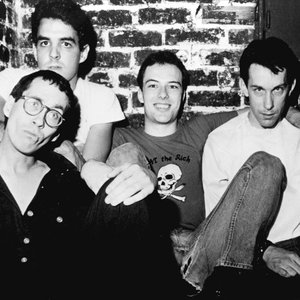Michael Stewart Foley: Dead Kennedys Fresh Fruit For Rotting Vegetables 33 1/3 Series
Groundbreaking Californian punks 1980 debut put under the microscope for the 33 1/3 series
Released Jun 9th, 2015 via Alternative Tentacles / By Erick Mertz
 I just returned from Southern California. Two agonizing days of driving, looking out the window, imagination loosened on a strange landscape.
I just returned from Southern California. Two agonizing days of driving, looking out the window, imagination loosened on a strange landscape. Anyone who has yet to travel out to the west coast can’t really appreciate how different things really are in the Golden State. The Central Valley is hot, arid, more so now than ever. It has become an endless miasmic sea of brown, accented by moments of irrigated vibrancy. Over a series of rolling hills, three lanes worth of drivers spin into Los Angeles and another improbably landscape opens wide. Another endless sea, only this time grey, potholed and more like the dystopian ending of a dream than its idealistic beginning.
For my experience, the Dead Kennedys are the quintessence of California rock. An improbable fusion of glamour and venom, political critique and raw, outsider art zeitgeist, few records seize time and place like their debut studio album, Fresh Fruit For Rotting Vegetables.
Author Michael Stewart Foley explores the band’s genesis from two equally critical points of view in his eponymous book in the 33 1/3 series, the political and social factors alive in California at the time as well as the stew of underground creativity that fed punk’s fetid blossom.
The Dead Kennedys are one of the rare bands for whom that line is blurred, obvious in any album that opens with an anthem like “Kill The Poor†and ends blistering with “Holiday In Cambodiaâ€. Lead singer Jello Biafra wasn’t just criticizing; he was defying the power structure with every last ounce of his being. Foley elaborates on why and how, separating him from the other punks, and other socially minded artists of the time.
Few artists captured that California strangeness quite like the Dead Kennedys, the heat, grit and absurdity. Foley’s book does the album a good turn, his eye for the social inspirations behind Biafra and others, as well as the creative are essential to its understanding.





 All Content RSS Feed
All Content RSS Feed
Follow Bearded on...